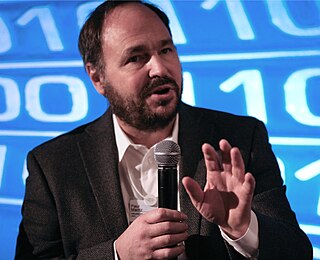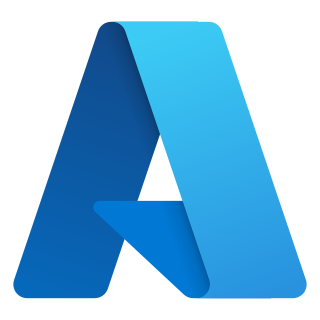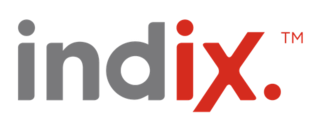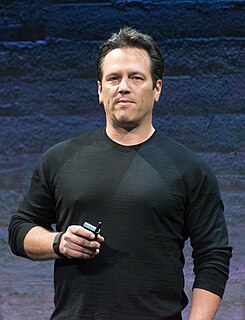
William Henry Gates III is an American business magnate, software developer, investor, author, and philanthropist. He is a co-founder of Microsoft, along with his late childhood friend Paul Allen. During his career at Microsoft, Gates held the positions of chairman, chief executive officer (CEO), president and chief software architect, while also being the largest individual shareholder until May 2014. He is considered one of the best known entrepreneurs of the microcomputer revolution of the 1970s and 1980s.

Microsoft Corporation is an American multinational technology corporation which produces computer software, consumer electronics, personal computers, and related services. Its best known software products are the Microsoft Windows line of operating systems, the Microsoft Office suite, and the Internet Explorer and Edge web browsers. Its flagship hardware products are the Xbox video game consoles and the Microsoft Surface lineup of touchscreen personal computers. Microsoft ranked No. 21 in the 2020 Fortune 500 rankings of the largest United States corporations by total revenue; it was the world's largest software maker by revenue as of 2016. It is considered one of the Big Five companies in the U.S. information technology industry, along with Amazon, Google (Alphabet), Apple, and Facebook (Meta).

Steven Anthony Ballmer is an American businessman and investor who served as the chief executive officer of Microsoft from 2000 to 2014. He is the current owner of the Los Angeles Clippers of the National Basketball Association (NBA). As of November 2021, Bloomberg Billionaires Index estimates his personal wealth at $117 billion, ranking him as the 8th richest person in the world.
Microsoft Developer Network (MSDN) was the division of Microsoft responsible for managing the firm's relationship with developers and testers, such as hardware developers interested in the operating system (OS), and software developers developing on the various OS platforms or using the API or scripting languages of Microsoft's applications. The relationship management is situated in assorted media: web sites, newsletters, developer conferences, trade media, blogs and DVD distribution.

Bob Wallace was an American software developer, programmer and the ninth Microsoft employee. He was the first popular user of the term shareware, creator of the word processing program PC-Write, founder of the software company Quicksoft and an "online drug guru" who devoted much time and money into the research of psychedelic drugs. Bob ended his Usenet posts with the phrase, "Bob Wallace ."
Criticism of Microsoft has followed various aspects of its products and business practices. Issues with ease of use, robustness, and security of the company's software are common targets for critics. In the 2000s, a number of malware mishaps targeted security flaws in Windows and other products. Microsoft was also accused of locking vendors and consumers in to their products, and of not following or complying with existing standards in its software. Total cost of ownership comparisons between Linux and Microsoft Windows are a continuous point of debate.
A technology evangelist is a person who builds a critical mass of support for a given technology, and then establishes it as a technical standard in a market that is subject to network effects. The word evangelism is borrowed from the context of religious evangelism due to the similarity of sharing information about the benefits of a concept with the intention of having others adopt that concept. This is typically accomplished by showcasing the potential uses and benefits of a technology to help others understand how they can use it for themselves.

Paul Alistair Maritz is a computer scientist and software executive. He held positions at large companies including Microsoft and EMC Corporation. He currently serves as chairman of Pivotal Software.

Peter Nicholas Biddle is a software evangelist from the United States. His primary fields of interest include content distribution, secure computing, and encryption.
Microsoft is a multinational computer technology corporation. Microsoft was founded on April 4, 1975, by Bill Gates and Paul Allen in Albuquerque, New Mexico. Its current best-selling products are the Microsoft Windows operating system; Microsoft Office, a suite of productivity software; Xbox, a line of entertainment of games, music, and video; Bing, a line of search engines; and Microsoft Azure, a cloud services platform.

Microsoft Silverlight is a discontinued application framework designed for writing and running rich web applications, similar to Adobe's runtime, Adobe Flash. A plugin for Silverlight is still available for a very small number of browsers. While early versions of Silverlight focused on streaming media, later versions supported multimedia, graphics, and animation, and gave support to developers for CLI languages and development tools. Silverlight was one of the two application development platforms for Windows Phone, but web pages using Silverlight did not run on the Windows Phone or Windows Mobile versions of Internet Explorer, as there was no Silverlight plugin for Internet Explorer on those platforms.

Greg Stein, living in Austin, Texas, United States, is a programmer, speaker, sometime standards architect, and open-source software advocate, appearing frequently at conferences and in interviews on the topic of open-source software development and use.

Microsoft Azure, often referred to as Azure, is a cloud computing service operated by Microsoft for application management via Microsoft-managed data centers. It provides software as a service (SaaS), platform as a service (PaaS) and infrastructure as a service (IaaS) and supports many different programming languages, tools, and frameworks, including both Microsoft-specific and third-party software and systems.
Platform evangelism is the application of technology evangelism to a multi-sided platform. It seeks to accelerate the growth of a platform's commercial ecosystem of complementary goods, created by independent developers, as a means to the end of maximizing the platform's market share. This initiative focuses on providing developers the resources to innovate, participate, and provide feedback to grow the platform.
Sanjay Parthasarathy is a former Microsoft executive and technology expert. He is currently the CEO of Indix, a technology company that provides a comprehensive product intelligence platform and a product database which aims to help websites and apps become product-aware.

Indix was a company based in Seattle, Washington in the United States that was offering a cloud-based product information platform. It did also built a broad and deep product catalog to enable mobile and desktop apps and websites to become product-aware. Indix provided access to APIs that enable developers to build product-aware applications. The big data startup was headquartered in Seattle with a product development office in Chennai and was founded in 2010 by former Microsoft executive Sanjay Parthasarathy.
Google Cloud Platform (GCP), offered by Google, is a suite of cloud computing services that runs on the same infrastructure that Google uses internally for its end-user products, such as Google Search, Gmail, Google Drive, and YouTube. Alongside a set of management tools, it provides a series of modular cloud services including computing, data storage, data analytics and machine learning. Registration requires a credit card or bank account details.

Phil Spencer is an American business executive, who is the current executive vice-president of Gaming at Microsoft. He is currently the head of the Xbox brand and leads the global creative and engineering teams responsible for gaming at Microsoft.
Microsoft, a technology company known for its opposition to the open source software paradigm, turned to embrace the approach in the 2010s. From the 1970s through 2000s under CEOs Bill Gates and Steve Ballmer, Microsoft viewed the community creation and sharing of communal code, later to be known as free and open source software, as a threat to its business, and both executives spoke negatively against it. In the 2010s, as the industry turned towards cloud, embedded, and mobile computing—technologies powered by open source advances—CEO Satya Nadella led Microsoft towards open source adoption although Microsoft's traditional Windows business continued to grow throughout this period generating revenues of 26.8 billion in the third quarter of 2018, while Microsoft's Azure cloud revenues nearly doubled.











